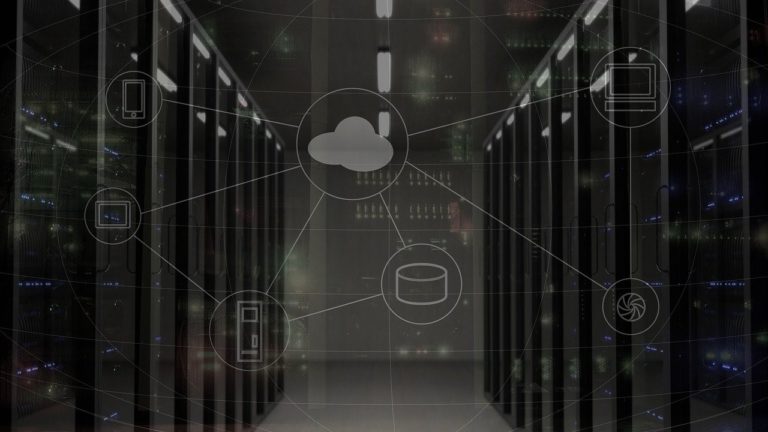Ever since it hit the market, cloud computing has been an indispensable tool offering a range of benefits to large and small organizations. From flexible operations, reduced IT costs, scalability, efficiency, and continuity to mention a few, cloud computing has stood the test of time, proving to be an invaluable solution as organizations strive to keep up with the rapidly evolving technology. Despite its contributions, cloud computing doesn’t deal with the problematic concern that, since the internet become, has exposed users to. Cyber threats are a menace that has, for years, led to significant losses extending from financial and emotional turmoil. As innovative developments continue to develop more measures to curb the threats, among the notable is the 2018’s GDPR introduction.
GDPR (General Data Protection Regulation) primary focus is personal data and privacy protection across European Union state members. Since its introduction, it has impacted cloud computing in various ways as enterprises strive to meet the requirements. Here is a look at how GDPR has affected cloud computing.
Data storage
While considering how organizations store data, GDPR has affected the retention time. The regulations require that an organization should delete data from its cloud server as well as from its local storage once the retention period has expired. Retaining personal data for longer than needed for the clear purpose puts it at risk since the organization might not be keenly looking at what is happening. With GDPR in place, the guidelines ensure that personal data is not exposed to such unnecessary risks that can be avoided by simply deleting it once it serves its purpose.

Privacy by design
Following GDPR, all organizations must put in place privacy-by-design for each application and system, aimed at protecting personal information. While designing cloud applications, therefore, enterprises have to adhere to the regulations, requiring you to ensure that your employees are adequately trained. With the GDPR training course, you can furnish your employees with the required knowledge to ensure that you comply with the regulations. Failure to observe the regulation could attract heavy penalties, noting that the impact could cause untold harm, such as the exposure of personal data, for example, credit card details of an organization’s customers.
Data ownership
Closely related to storage, data ownership regulations require that the cloud provider contract should clearly detail that ownership of personal data of customers should be on their hands. The regulation also states that if however, the data is stored outside the EU, then the responsibility is solely on the organization. This clears any confusion concerning who would be held responsible should an issue arise that exposes such data into the wrong hands, making it easier to hold them accountable.
Data breaches
Data breaches response and coordination have been a significant factor that could worsen the situation should it occur. Following GDPR, it is required that in agreement with the cloud provider, protocols and notifications should be put in place between both parties. This means that the enterprise should be notified of any breach event without undue delay should a breach happen. What’ more, should a data breach occur in the future, the cloud provider should immediately notify the enterprise. This would help the enterprise to implement measures to manage the situation before it causes significant harm either on their own, in collaboration with the cloud server provider, or with a third-party service provider. The data breach regulation is especially a significant milestone in cloud computing, noting how fast a breach could jeopardize an enterprise’s operations and their personal data in the near future.
Data processing outside the EU
In cases of data stored in multiple locations, including outside the European Economic Area by the cloud providers, an enterprise can decide to white-list the country they want their data to reside. In part, the regulation offers the enterprise the much-needed control of where their data is stored, noting that some regions are seen as more susceptible to cyber threats due to the regulations in place. This allows the enterprise to choose a country with a similar level of protection as is the EU, cautioning their data from exposure to higher risks. It also eliminates confusion and possible scapegoats that cloud providers could utilize to alleviate data breaches consequences as the contract details where the data is stored.

Metadata visibility
What Metadata does a cloud provider collect? Before agreeing with a cloud provider, the enterprise should be furnished with the knowledge of the Metadata that the cloud provider collects. GDPR also allows enterprises to work closely with the cloud provider to establish metadata protection, ownership rights, opting out of the collection and distribution of the Metadata, as well as the intended use. This offers more protection to an organization while setting a clear path as they interact with cloud providers eliminating any hiccups that could affect data security and privacy.
Data portability
As you enter into a contract with a cloud provider, they should provide details of their technical capabilities to facilitate data portability. GDPR requires that the data should be retrieved in a structured, machine-readable, and commonly used format. This means that as an enterprise, you should check the cloud provider’s capability to satisfy such requirements to facilitate a smooth and secure data sharing as you engage other enterprises.
Risk management
Before engaging a cloud provider, GDPR gives you the right to assess their capability by subjecting them to third-party risk management. This allows organizations to establish any risks that could arise while engaging with the cloud service by undertaking a security assessment as well as Data Protection Impact Assessment (DPIA). Before engaging a cloud provider, moreover, GDPR allows organizations to audit the cloud providers by the inclusion of the right to audit in the agreements.
GDPR’s impact on cloud computing touches both cloud providers and organizations. The above is a highlight of what the regulations entail, requiring significant evaluation of an organization’s operation to ensure they comply. With a bare look, it might seem like an incredibly challenging endeavor. Still, with proper training, GDPR adherence goes a long way in enhancing security and privacy while using the crucial cloud computing technology.




